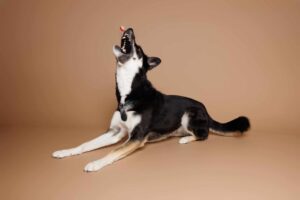
Our Goal
It is our goal to provide training programs resulting in happy, confident dogs, as well as guardians who know how to work with their dog. We believe in building relationships with our dogs through skill building, compassion and education. Further, we believe it is important to provide training classes in a positive environment to enable dogs to feel safe. Dogs experiencing behavior concerns may be referred to a behavior specialist.
2026 Courses
Click to expand
Price: $125 for 5-week class
For puppies 8 weeks to 5 months. This class will get puppies off on the right paw. They will learn to focus on their owners, the benefits of mat behaviors, loose leash walking, impulse control, sit, down, stay, and so much more.
If you don’t see a class that fits your schedule, email Nikki or call the shelter at (262) 677-4388 to be added to the wait list.
Price: $125 for 5-week classes, $150 for 6-week classes
For puppies and dogs 6 months and older. This class will teach older puppies and dogs the basics that are needed to create a well-rounded dog that you will be proud of. From sitting down to focus on you, we will show you how to make your training a positive experience for both you and your dog.
If you don’t see a class that fits your schedule, email Nikki or call the shelter at (262) 677-4388 to be added to the wait list.
Price: $150 for 6-week class
For puppies or dogs who have completed a Lifeskills 1 or Lifeskills 2/Basics class and are able to demonstrate: walking politely on leash, have a reliable recall, handler has reasonable control of dog, and can hold a “stay” for 15-30 seconds. Working on focus and distractions through engaging activities, transitioning to minimal leash handling, and continue building a more positive, respectful working relationship as a team. Course builds a foundation for Canine Good Citizen testing and eventual participation in canine performance activities.
Must be 15 or older to handle dogs
If you don’t see a class that fits your schedule, email Nikki or call the shelter at (262) 677-4388 to be added to the wait list.
Price: $150 for 6-week class
This class will help you determine the triggers and level of their FAS behaviors. We will introduce common anxiety related items along with training techniques that will help reduce their stress in and outside of your home. The class will also introduce new cues in relation to this class and some other basic cues. This class is suitable for any age, but we ask that your dog has been living with you for at least 2 months.
If you don’t see a class that fits your schedule, email Nikki or call the shelter at (262) 677-4388 to be added to the wait list.
Price: $150
For puppies and dogs ages 6 months and older. Nose Work is an activity all dogs can play. It builds confidence and focus, burns energy, and strengthens the handler – canine relationship. In this introductory class we will build motivation and drive for searching using cardboard boxes and food motivators, then introduce more complex odor pictures in different areas within the shelter. One team works at a time; dogs will rest in crates between turns. (Flat buckle or martingale collars only, regular 6ft leash.)
If you do not see a class that meets your schedule, email Nikki or call the shelter at (262) 677-4388 to be added to the wait list.
Price: $50
For puppies and dogs 6 months and older. 2-hour workshop introducing the fundamentals of K9 Nose Work ®. Crates are utilized when dogs are not active in class.
Price: $100
These sessions are open to any teams who have taken an Introduction to K9 Nose Work® class or workshop. The searches will be individualized to search for primary rewards to further expose the team to odor pictures before introducing odor.
Price: $100 Activities for this offering are designed to involve the family in engaging games, tricks, and behaviors to build a respectful, compassionate bond between humans and canine. The family will work together to develop consistent verbal cues and visual signals to minimize confusion and facilitate learning.
Don’t see a class, date or time that fits your schedule or needs? Consider private lessons! Take part in one-on-one sessions with our trainer, Kelli Jo, and build a lesson plan tailored specifically for your dog!
$80 for 60 minutes
$50 for 30 minutes
To set up private lessons, email Nikki or call the shelter at (262) 677-4388.
Meet Our Dog Trainers
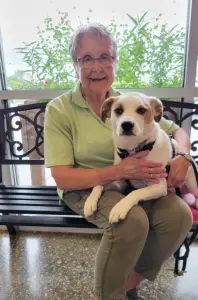
Chris
Click here for bio
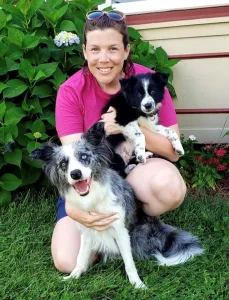
Kelli Jo
AKC CGC Evaluator
Click here for bio
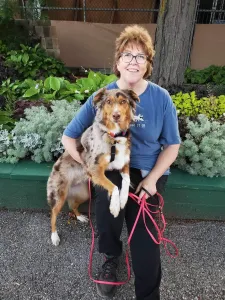
Michelle, CNWI
Click here for bio
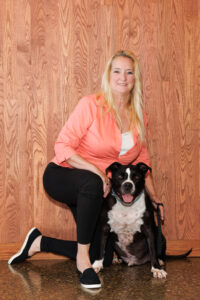
Lori Jo
Click here for bio
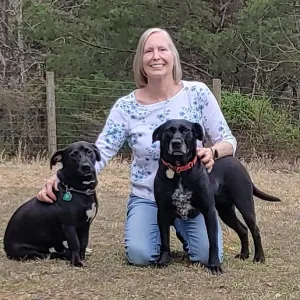
Maureen
Click here for bio
Our Dog Training Philosophy
Positive Reinforcers and Motivators
The use of positive reinforcers and motivators are not only acceptable but strongly encouraged in WCHS training classes. Positive motivators encourage a dog to perform a desired behavior. Also, positive reinforcers strengthen the behavior by offering a meaningful reward that a dog will modify his behavior to obtain.
The motivator must be appealing enough to make a dog work for it. These motivators help build a relationship of trust, affection and positive association. Even if used incorrectly, positive reinforcers and motivators create very little risk of a lasting negative impact on the dog, the relationship or the learning process.
Examples:
- Voice – verbal praise
- Physical Affection
- Food/treats
- Markers such as whistles, clickers or verbal (i.e. “Yes!”)
- Life Rewards (i.e. Sit at the door = opportunity to go outside)
- Play (i.e. Sit = ball will be thrown)
Equipment & Class Size
The best training tools enhance the ability to communicate with a dog while building a bond of trust and affection.
- WCHS does not support the use of choke collars, shock collars or prong collars.
- Body Harnesses are encouraged to reduce stress on a dog’s neck and spine.
- Continuing Education: WCHS believes that it is important to keep up with current dog training trends and new techniques used in the training field.
Classes will be limited to no more than 6 dogs per instructor.
Our Guidelines
The techniques used in the WCHS training program will follow the Least Invasive, Minimally Aversive (LIMA) principle.
- Are dedicated to the use of science based training methods, utilizing the least aversive techniques possible.
- Are committed to using positive reinforcement as a teaching tool and negative punishment as complementary management
- Adhere to the Humane Hierarchy, as outlined by Dr. Susan Friedman. Read more
- Adhere to The Five Freedoms of The Farm Animal Welfare Council. Read more
- Do not use or condone ideologies, methods or gear that impart physical or psychological punishment or pain on animals.
- Pursue and impart knowledge, maintain competence in animal behavior through continuing education, active training and applied experience.
Aversive training methods are based on making a dog feel something unpleasant or painful because they have done something “wrong.” Aversives can be anything that a dog finds displeasing. Aversives inhibit learning and inhibits the formation of trust between the dog and owner. What is aversive to a dog is highly individualized and can have a lasting effect beyond the change of behavior. These side effects can manifest as avoidance, fear, or aggression, and can teach a dog to be fearful or anxious about people or situations.
Hear from others!
Kelli kept the class moving!. It was over every week before you knew it. She offered good tips – the best was her way of loose leash walking where you drop the treat behind you.
Chris was very kind to me and my dog. It made me feel so much more confident in our abilities as a team. I’m really grateful for the welcoming atmosphere provided, and her support of both myself and my dog as well as recognizing his strengths as a companion and family member. It really meant so much to me.
Very accommodating to everyone’s needs.
